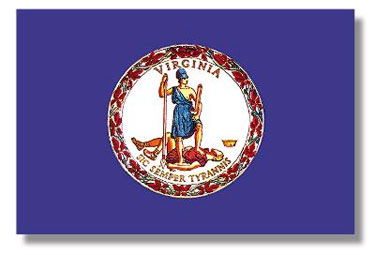Today we will take a look at a couple of the hot-button topics in the world of procurement fraud — specifically the Procurement Integrity Act (“PIA”)(41 U.S.C. § 423) and those portions of the Federal Acquisition Regulations (“FAR”) provisions prohibiting Organizational Conflicts of Interest (“OCI”)(FAR Subpart 9.505).
Major government contractors have, like other large companies, had a tendency to become even larger over the last 20 years or so through mergers and acquisitions. Many younger folks may not realize it now, but Lockheed Martin was one once two separate companies, Lockheed Corporation and Martin Marietta Corporation. Northrup Grumman was once two separate companies–Northrup Corporation and Grumman Aerospace, and so on and so forth.
Sometimes, the mergers and acquisitions themselves spawned smaller companies that then launched an aggressive expansion program. icFor example, L-3 Corporation (which is now one of the five biggest contractors in the world) was born when Martin Marietta merged with Lockeed in the mid-1990’s; Lockheed was not interested in a handful of Martin’s business lines, and so those lines were spun off as L-3.
But I digress–it suffices here to say that as business have gotten larger and more complicated, the statutes and regulations concerned with avoiding conflicts of interest and other improper business practices have become more and more important.
The prohibition on OCIs furthers a number of very important government interests, such as the government’s interest in obtaining the best price possible for all goods and services purchased, as well as keeping the procurement process free of corruption and unethical behavior.
As such, the prohibition on OCIs (like the prohibitions of the PIA) make it unlawful for any contractor to seek or obtain an unfair competitive advantage in bidding for federal work; the prohibition on seeking or obtaining such information includes but is not limited to gaining unequal access to nonpublic information, collusion between contractors (or sub-divisions of a single contractor), and other types of wrongdoing.
So why are there two sets of rules prohibiting most of the same things? Lots of reasons of course, but the main reason as I see it is that there is a big difference between an OCI and a violation of the PIA–and it boils down to knowledge and culpability. The PIA requires a level of knowledge and level of wrongdoing above and beyond the level required for an OCI violation. In fact, a company could inadvertently develop an OCI; a violaiton of the PIA on the other hand requires an affirmative act.
As might be expected, the potential penalties are correspondingly more severe for a violation of the PIA, and potentially include criminal sanctions such as imprisonment for not longer than five years. The PIA extends liability to individuals as well as their employers. If pursued by way of a civil action, each individual defendant is liable to the Federal Government for a civil penalty of not more than $50,000 for each violation plus twice the amount of compensation that the individual received or offered for the prohibited conduct.
It is also important to note that an organization is liable to the Federal Government for a civil penalty of not more than $500,000 for each violation plus twice the amount of compensation that the organization received or offered for the prohibited conduct. See, 41 U.S.C. § 2105.
The government also makes a full range of remedies available, including an administrative forfeiture proceeding. This is appears to be the least punitive option the government has, and even in an administrative proceeding the government is still entitled to recover the entire amount paid to the contractor under the contract.
The nexus between OCIs and the federal False Claims Act is examined at length in an important Fourth Circuit case; there, the Court found that a contractor’s “no-OCI certification” if false is a violation of the federal False Claims Act, because the “no-OCI certification” plays an important role in the procurement process by ensuring that all government contracts are bid fairly.
I am talking of course about the venerable and often-quoted U.S. ex rel. Harrison v. Westinghouse Savannah River Co., 352 F.3d 908, 916 (4th. 2003).
Importantly, in Harrison, the Fourth Circuit also found that an employee’s access to confidential pricing information of a competitor created an OCI which precluded the contractor from bidding. In so ruling, the Harrison court explicitly ruled that the falsity of the “no-OCI certification” was material to the government’s decision to award the contract.
Since the Fourth Circuit’s opinion in Harrison, a significant body of case law has slowly developed in other circuits. For example, the U.S. Court of Appeals for the District of Columbia recently upheld a jury verdict finding a major government contractor violated the FCA by seeking payments at same time that it knew it was violating contractual provisions governing potential conflicts of interest. U.S. v. Science Applications Intern. Corp., 626 F.3d 1257 (D.C. 2010).
As with most areas of the law, development has taken time, but if you ask me, the body of law involvinig violations of the PIA and OCIs is about to explode.
